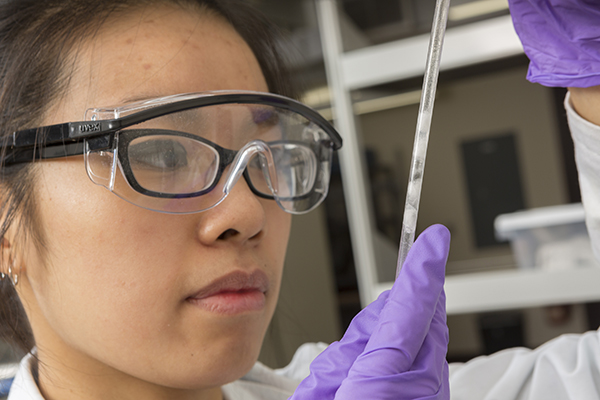Binghamton University earns “very high research” status in Carnegie Classifications
Joins with elite national universities that have achieved highest rank

Binghamton University can now count itself among the 131 elite universities in the nation that have achieved the “very high research” classification by the Carnegie Classification of Institutions of Higher Education.
“This is exceptional news that will have a far-reaching impact for Binghamton University,” said President Harvey Stenger. “Being recognized as having a significant research presence among other top universities in the nation is a testament to the quality of our faculty and those who conduct research at Binghamton.
“This classification underscores the innovative work of our researchers as well as the importance of research funding on our reputation and for the growth of our graduate programs – two key measures that we are continually growing faster than our peers,” Stenger said.
“It’s a true indication that the investments we made in hiring additional tenure-track faculty through NYSUNY 2020 and to start a pharmacy school has elevated our research and doctoral education to put us in the elite R1 category,” he said.
“This designation will help us recruit faculty, deans and others to leadership positions and I think it’s part of the process of branding the University,” said Donald Nieman, executive vice president for academic affairs and provost.
“If you look at the list of 131 schools, one of notable things is that there are very few universities on that list that are as selective at the undergraduate level as we are,” Nieman added. “It’s an affirmation that we have been able to increase the excellence of undergraduate education through programs such as our Freshman Research Immersion, calculus reforms, Source Project and institutes such as the Institute for Genocide and Mass Atrocity Prevention and the Human Rights Institute while also growing our research and our reputation for research.
“The fact that we’ve been able to do both is a testament to the quality of our faculty, the quality of our deans and our strategies through the Road Map,” Nieman said. “It’s really quite remarkable and a nice external affirmation of what we’ve accomplished.”
This is the first time Binghamton has been placed in the R1 category for the classifications, which began in 1973 and are reviewed and updated every five years. The new classifications are based on data from the 2016-17 academic year that looked at research and development expenditures, research staff and doctorates conferred. It places Binghamton at the level of other universities including Cornell, Harvard, Johns Hopkins, Massachusetts Institute of Technology and Stanford. For the complete listing, visit the Carnegie Classifications website.

